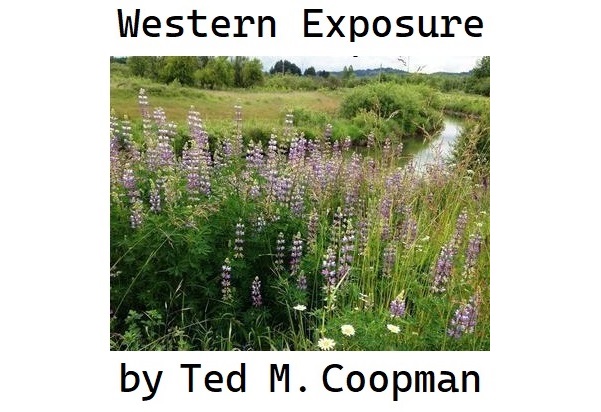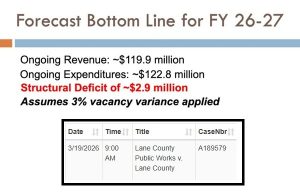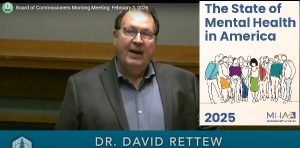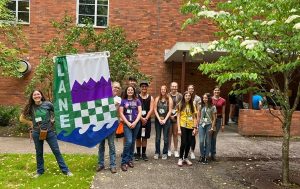A strong defense of the Eugene Weakly
4 min read
by Ted M. Coopman
Okay, I have my issues with the Eugene Weakly (and yes, that spelling is intentional, not a typo). As news spread of its potential demise at the hands of an alleged embezzler, I saw remarks in my inbox ranging from “Oh no!” to “Good riddance.”
Sure, its editorial slant, at times, does more to reify our local ideology of power than challenge it, but that is fixable. But with the functional loss of the Register-Guard (motto: “Yesterday’s News, Tomorrow”) it is the last of our local print media and the only one with local editorial content and letters to the editor.
Therefore, we should not let the perfect be the enemy of the good—or the potential of something else over what we have. We should rally to support a paper facing its impending demise. Losing the EW would be a catastrophic blow to the remaining shreds of a local free press that Eugene needs now more than ever. At the very least, we should not allow a few years of shortcomings in financial oversight to crater an otherwise perfectly viable local business.
As someone who has researched and taught on the media and the press, and participated in the media democracy movement to build and expand local independent media, I know a thing or two about the challenges involved.
First, the hardest part of any media endeavor is creating the infrastructure: building the platform to hold the content. The logistics and structure are incredibly hard to build. Starting a publication from scratch is a huge lift.
After 40 years, the EW’s structure, name recognition, distribution network, staff, advertisers, and readership have tremendous value and are, likely, impossible to recreate from the ground up. That alone is a reason to fight to keep the EW operational. Anything to do with editorial process or content can be improved, the potential is always there, but not if the structure and network of the paper are lost.
Print matters. It may seem antique to some, especially those who use the EW website, but physical media at places we frequent is one of the few ways to reach a wide variety of people directly. There are many distractions online and you need some intentionality to go to that EW website.
The printed newspaper has the value of potentially reaching anyone who goes to the grocery store, out to eat, out for coffee, or to any of the wide variety of places we share as we navigate our physical world. It gives us something in common. That red Eugene Weekly box is an important physical marker in our city.
We have a vibrant and rich arts and cultural scene in Eugene. The EW is the only place where you can find everything that is going on – theatre, film, art shows, music, and an unending variety of interesting weirdness that we might otherwise miss. It is there, sitting in that box, all in one place, every week, so you can grab it and see “what’s happening.”
Local businesses also find it as a way to reach a diverse cross section of Eugene in one place for very reasonable rates. It is not hyperbolic to think that many arts and cultural ventures, many operating on the thinnest of margins, would fail and others never get a chance if the EW ceases to exist. It showcases what we have for visitors who find a ready-made guide to our city and all it has to offer.
As I write this, the EW has raised about $62K of its $188K goal. Almost 900 people have donated. Are there enough people willing to donate enough money to reach that goal? I am not so sure but would be happy to be wrong. But that is a lot of money.
While I am sure the ownership is not too interested in my advice (especially after my critique above), this may be an opportunity to restructure. It has long been my opinion that local news would be better served by either a worker-owned and/or nonprofit framework. The EW may benefit from a more robust financial and ownership base that could take advantage of the benefits and tax-deductible donations of a not-for-profit organization.
Gathering a group of active and engaged local donors to underwrite and create a board of directors might provide some financial stability and permanently forestall either the paper’s closure or its acquisition by a chain—the fate of most weeklies. If just one or two people continue to control the paper, it could meet the Register-Guard’s fate.
This incident points out the fragility of the Eugene Weekly. As a community, we should not waste this crisis but should seize this opportunity to protect a local newspaper—an irreplaceable local institution—for future generations.
Western Exposure is a semi-regular column that looks at issues and challenges from a West Eugene perspective – a perspective that is often ignored or trivialized by city leadership and influential groups and individuals largely based in south and east Eugene.
Western Exposure rejects the fauxgressive party line, performative politics, and “unicorn ranching” policy in favor of pragmatism focused on the daily experiences of residents and small businesses in Eugene—and West Eugene in particular.
Ted M. Coopman has been involved in neighborhood issues since 2016 as an elected board member, and now chair, of Jefferson Westside Neighbors and has 30+ years experience as an activist and community organizer. He earned a Ph.D. in Communication (University of Washington) and served on the faculty at San Jose State University from 2007 to 2020.
Ted’s research on social movements, activist use of technology, media law and policy, and online pedagogy has been published and presented internationally and he taught classes ranging from research methodology to global media systems. He and his spouse live in Jefferson Westside with an energetic coltriever and some very demanding and prolific fruit trees.







